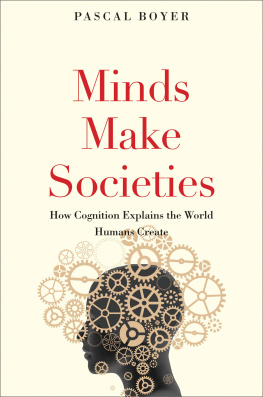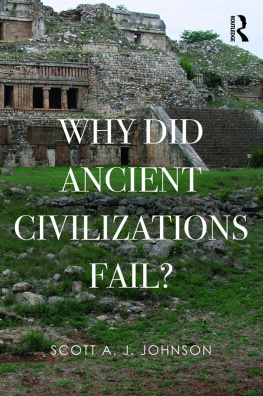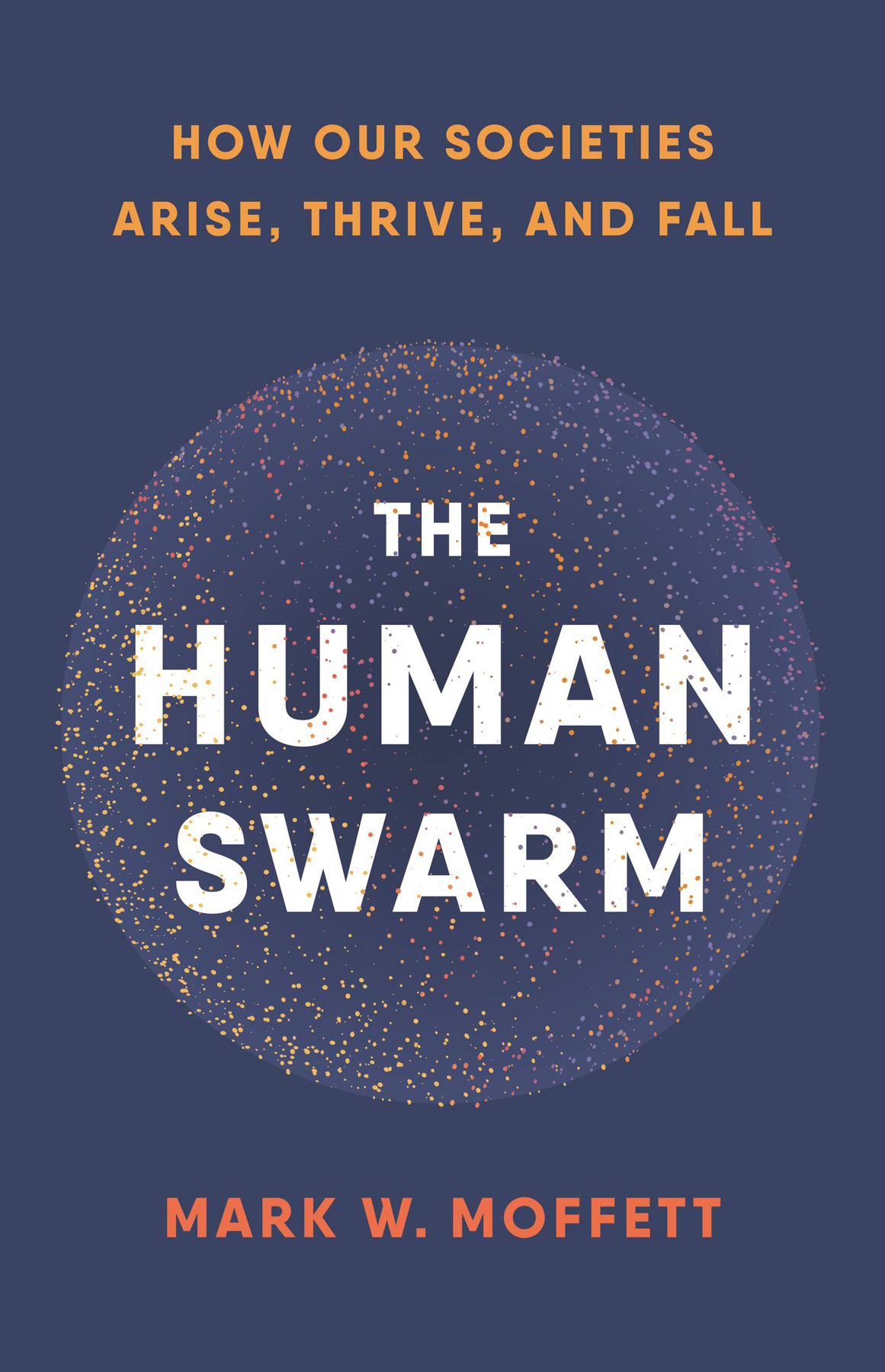Copyright 2018 by Mark W. Moffett
Cover design by Fort
Cover image copyright Amitus/Getty Images
Cover copyright 2019 Hachette Book Group, Inc.
Hachette Book Group supports the right to free expression and the value of copyright. The purpose of copyright is to encourage writers and artists to produce the creative works that enrich our culture.
The scanning, uploading, and distribution of this book without permission is a theft of the authors intellectual property. If you would like permission to use material from the book (other than for review purposes), please contact permissions@hbgusa.com. Thank you for your support of the authors rights.
Basic Books
Hachette Book Group
1290 Avenue of the Americas, New York, NY 10104
www.basicbooks.com
First Edition: April 2019
Published by Basic Books, an imprint of Perseus Books, LLC, a subsidiary of Hachette Book Group, Inc. The Basic Books name and logo is a trademark of the Hachette Book Group.
The Hachette Speakers Bureau provides a wide range of authors for speaking events. To find out more, go to www.hachettespeakersbureau.com or call (866) 376-6591.
The publisher is not responsible for websites (or their content) that are not owned by the publisher.
The Library of Congress has cataloged the hardcover edition as follows:
Names: Moffett, Mark W., author.
Title: The human swarm : how our societies arise, thrive, and fall / Mark W. Moffett.
Description: New York : Basic Books, [2019] | Includes bibliographical references and index.
Identifiers: LCCN 2018038761 (print) | LCCN 2019006348 (ebook) | ISBN 9781541617292 (ebook) | ISBN 9780465055685 (hardcover)
Subjects: LCSH: Sociology. | Communities.
Classification: LCC HM585 (ebook) | LCC HM585 .M64 2019 (print) | DDC 301dc23
LC record available at https://lccn.loc.gov/2018038761
ISBNs: 978-0-465-05568-5 (hardcover); 978-1-5416-1729-2 (ebook)
E3-20190305-JV-NF-ORI
This fine work should have broad appeal to anyone curious about human societies, which is basically everyone.
Publishers Weekly, Starred Review
Our times are filled with garage start-ups that become Silicon Valley behemoths overnight. Such scaling-up pales in comparison to humans going from hunter-gatherer bands to our globalized world in the blink of an evolutionary eyeand thus now, a stranger a continent away can be killed when we press a button operating a drone, or rescued when we press a button marked Donate now. In The Human Swarm, Mark Moffett charts the science of this scaling up of human societies, and its unlikely evolutionary consequences. This highly readable book is ambitious in its interdisciplinary breadth, rigorous in its science, and deeply thought-provoking in its implications.
Robert Sapolsky, author of Behave
A tour-de-force.
Donald Johanson, discoverer of the famous missing-link fossil Lucy and founder of the Institute of Human Origins
The Human Swarm is a book by a biologist that should fascinate any thoughtful reader and deserves to be taken seriously by psychologists and social scientists alike.
Roy Baumeister, author of Willpower
A truer statement hasnt been uttered: Our groupiness shapes human history. Moffetts book is a wide-ranging, deeply interesting analysis of how large numbers of individual agents become a society. His travels in the world and through vast intellectual landscapes give him a unique view of why we are the way we are, both in our similarity to other living beings and our differences from themour ability to include once alien groups into our own, for example. There is no other book Ive read recently that made my neurons pop at the rate this book did.
Mahzarin Banaji, author of Blindspot
This is a book of amazing ideas, many of them counterintuitive. Mark Moffetts astounding stories of animal societies persuaded me that the future of human cities have been foretold by the ants. Read this manifesto if you like to have your mind changed.
Kevin Kelly, founder of Wired Magazine and author of The Inevitable
In the past quarter century, there has emerged a genre of Big History that includes such epic books as Jared Diamonds Guns, Germs, and Steel, Steven Pinkers The Better Angels of Our Nature, and Yuval Noah Hararis Sapiens. Mark Moffetts The Human Swarm is destined to be included in future lists of such books that not only add to our understanding of who we are, how we got here, and where were going, but change our perspective of how we fit in the larger picture of life on Earth. A magisterial work of monumental importance.
Michael Shermer, publisher of Skeptic magazine and author of The Moral Arc
Homo sapiens is a small-group social animal that physically seems to be limited to personal relationships with a few individuals. Nonetheless humanity is struggling to deal with societies of billions as human technologies now pose existential threats tied to those numbers. In The Human Swarm, Mark Moffett presents an intriguing overview of the biological roots and cultural evolution of this now-critical situation.
Paul R. Ehrlich, author of Human Natures
The Human Swarm is surely the most accurate, most comprehensive, most original explanation of our social existence that were ever likely to see, one jaw-dropping revelation after another, most of them astonishing, all of them fascinating. Its true without question, which seems obvious as youre reading, and its very well writtena joy to read.
Elizabeth Marshall Thomas, author of The Harmless People
Adventures Among Ants:
A Global Safari with a Cast of Trillions
Face to Face with Frogs
The High Frontier:
Exploring the Tropical Rainforest Canopy
I dedicate this book to three remarkable individuals.
Firstly, my mentor Edward O. Wilson, out of awe for his poetic spirit, his decades of building connections across the sciences, and his indefatigable support of so many careers,
my off-kilter one included;
To the late and great Irv DeVore, who fostered critical thinking across generations of anthropologists and put up with hours of conversation with this biologist;
And to Melissa Wells, my splendid wife and partner,
who believes in me.
And what, I said, will be the best limit for our rulers to fix when they are considering the size of the State and the amount of territory which they are to include, and beyond which they will not go?
What limit would you propose?
I would allow the State to increase so far as is consistent with unity; that, I think, is the proper limit.
Very good, he said.
PLATO, The Republic
F or as long as human societies have existed, people have found themselves changed, the members of those societies transformed in their minds eye into exalted Human Beings. Yet as powerful as belonging to a society can be in raising the citizens collective self-image, its not their fellow members that they see most differentlythe foreign undergo the more radical, at times dreadful, transformation. In each persons mind, entire groups of outsiders can turn into something less than human, a kind of vermin, even.
That foreigners might be considered contemptible enough to crush underfoot, like insects, is the stuff of history. Think back to the year 1854, Washington Territory. Seattle, chief of the Suquamish Tribe and namesake of the newly founded city, had just heard Isaac Stevens, the territorys recently appointed governor, speak before the tribal elders. Stevens had explained that the Suquamish were to be relocated to a reservation. Standing to respond, Seattle towered over the slight governor. Speaking in his native Duwamish, he bemoaned the abyss between their societies and recognized that the days of the Suquamish were numbered. Yet he was stoical about the news: Tribe follows tribe, and nation follows nation, like the waves of the sea. It is the order of nature, and regret is useless.









